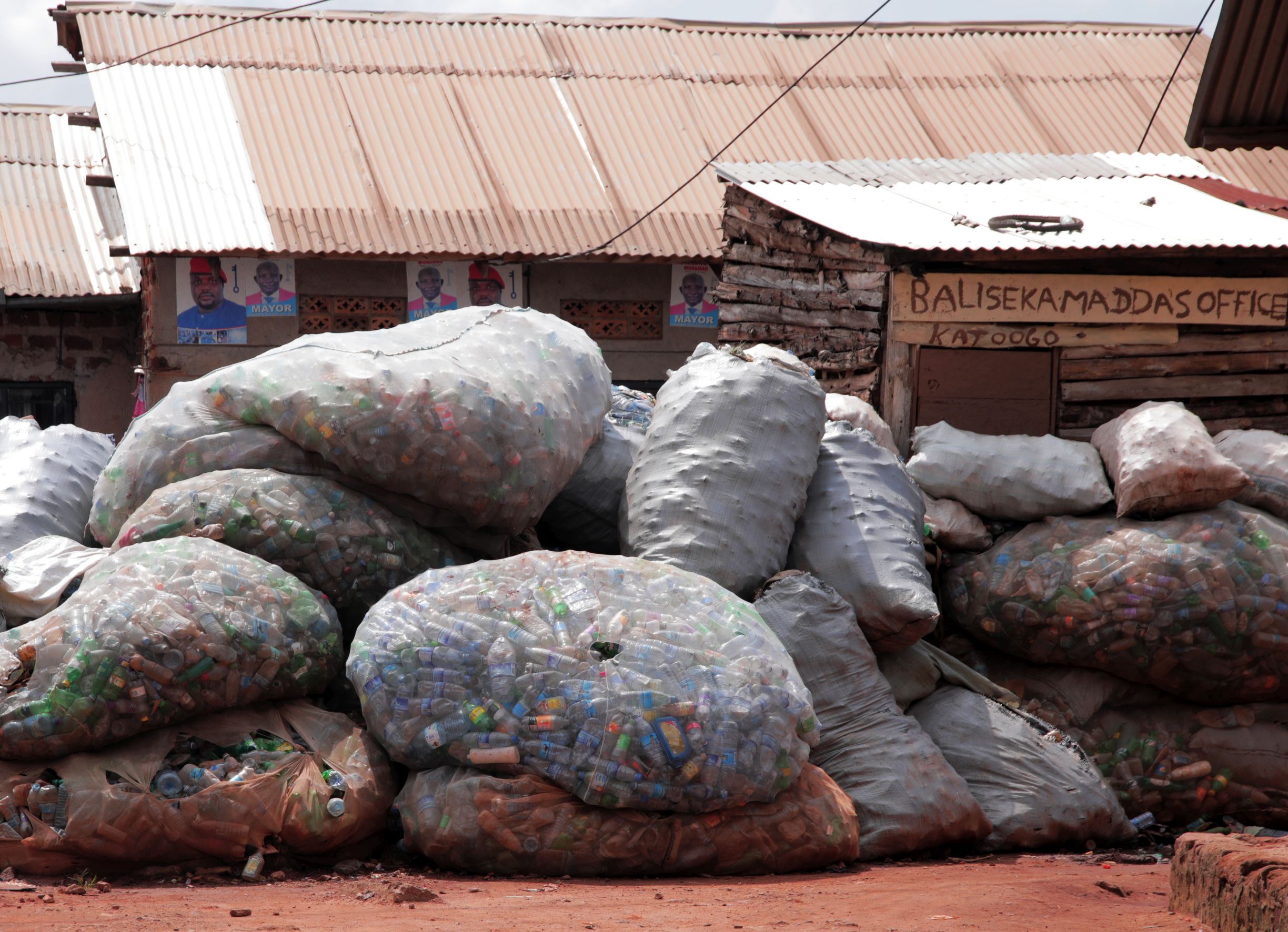- Who We Are
- How We Work
- Regional / Country Initiatives
- Legacy
- Core Themes
- Working Groups
- Portfolio & Results
- Newsroom
- Resources
A Partnership to Support Cities in Addressing Climate Change
The urban poor, often living in flimsy housing in precarious locations with little or no access to basic services, face the maximum risk posed by climate change.
-- Cities are already more vulnerable to the impacts of climate change than at any other time in history.
-- Fifteen of the world’s 20 megacities are at risk from rising sea levels and coastal surges.
-- The poor are more exposed to natural hazards than any other urban population group.
Climate change is increasingly affecting cities, and in a variety of ways. Impacts range from an increase in the frequency and intensity of extreme weather events such as heat waves, to landslides and flooding. The urban poor, often living in flimsy housing in precarious locations with little or no access to basic services, face the maximum risk. Heavy rains can turn into disastrous floods, or a devastating mudslide, especially in a crowded slum settlement with poor drainage.
Globally, we still lack a binding international climate change framework to respond to these impacts. There is, therefore, an urgent need for cities to take on the responsibility of reducing the vulnerability and risk exposure of its residents, especially the poor - and increasingly, many cities are already taking action.
Nurturing a Strong, Strategic Partnership
In 2009, an important collaboration among Cities Alliance members was born to address the challenges posed by climate change. The Joint Work Programme (JWP) called Supporting Cities in Addressing Climate Change Challenge comprises the United Nations Environment Programme (UNEP), UN-Habitat and the World Bank, and is facilitated by the Cities Alliance Secretariat. Its goal is to create a more coordinated, focused and long-term response to the impact of climate change on cities, especially in developing countries. Over the years, the JWP has progressed in a manner that directly shapes the climate change agenda for cities of all sizes, in all regions.
Through close and regular engagement, the JWP concentrates its efforts on five areas: knowledge management, operational support, monitoring, awareness raising and coordination. Seed funding of USD 500,000 from Cities Alliance has helped leverage the impact of the other partners’ contributions of approximately USD 5 million through better coordination and the development of joint outputs such as tools to assess climate risk.
Yielding Demonstrable Results
With the Cities Alliance as convener and facilitator, the combined efforts of UNEP, UN-Habitat and the World Bank have contributed to substantial progress in work on cities and climate change.
One of the important contributions of the JWP is consensus building on a protocol to measure greenhouse gas (GHG) emissions. In the past, cities adopted different methods to measure emissions. The new protocol enables cities to follow a standardised approach, making analysis and learning across cities easier. In addition, a common, verifiable metric helps attract additional finance for cities grappling with limited funds for climate change adaptation and mitigation.
The JWP has also led to the creation of useful tools for better urban management in the context of climate change. The Urban Risk Assessment provides cities with a common framework to assess disaster and climate risk for better decision making, urban planning and risk management. A dynamic Mayors’ Task Force on Climate Change, Disaster Risk and the Urban Poor has been created to support city leaders as they attempt to understand these issues, identify good practice examples, and propose policy and investment programmes to improve the resilience of the urban poor. An online Knowledge Centre on Cities and Climate Change (K4C) serves as a platform for sharing knowledge and best practices.
Soraya Smaoun (UNEP) sums up the success of the JWP: “What works for the JWP is that coordination happened. All too often organisations agree to coordinate – but in practice it is difficult. It is the personal commitments that make a difference, and the JWP offers that opportunity.”
Lessons Learned from the JWP
The climate change agenda provides a powerful opportunity for an enhanced focus on improving urban governance, slum upgrading and municipal service delivery. The JWP has successfully promoted this message in all its activities. Looking ahead, the collaborating agencies must focus on the operationalisation and implementation of knowledge generated as a result of its efforts, as well as coalition building. It is essential to build coalitions among stakeholders to foster the mainstreaming of climate-sensitive planning and financing mechanisms in cities.
Over the years a number of tools and climate indices have been developed, and consensus building is essential in order for those tools to become effective at the local level. Consensus needs to be built within the partnership, and among other relevant stakeholders, on the climate tools that can enable cities to adapt, implement and use standardised tools and indices. This also helps cities reduce their operational transaction costs.
Finally, there is a growing trend among cities and local government organisations to unite on global issues, making them crucial operational partners internationally. These groups of Mayors - some of whom oversee cities with budgets larger than those of many countries - hold significant power in environmental matters. They also contribute to the implementation of climate agreements and shape policies at the global, national and local level. If we are to achieve greater impact in the global and local response to climate change, there needs to be enhanced alignment and coordination between the different existing partnerships and local government organisations.
|
| “What worked for the JWP was that coordination happened.” Soraya Smaoun, UNEP |

